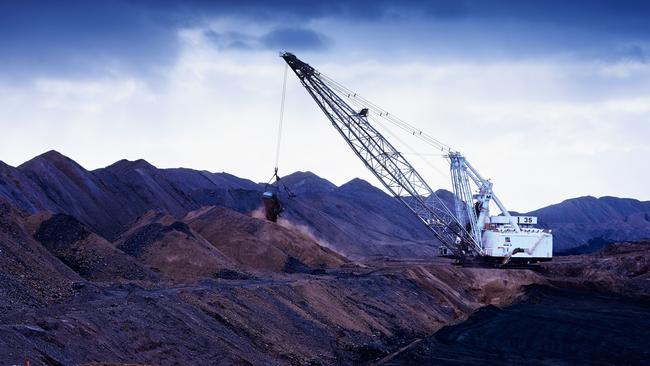BHP in split with Minerals Council over climate, coal
BHP is threatening to quit the Minerals Council amid disagreements with the lobby group over climate policy, coal.

BHP Billiton has threatened to leave the powerful Minerals Council of Australia if the lobby group continues to push for energy policy that prioritises costs and reliability over emissions reduction, and keeps calling for policies that would encourage coal power plant development over other sources.
In a review of its membership of industry groups that hold positions on climate and energy policy, released today, the big miner said it would quit the World Coal Association but for now stay a member of the Minerals Council, for which it is the biggest source of funding.
BHP said it would remain a member of the Minerals Council because it derives a high level of benefit from membership.
“However, BHP will formally communicate the identified material differences to the board of the MCA, request that the MCA refrain from policy activity or advocacy in these areas, maintain a register of material differences, and will review its membership of the MCA if it has not refrained from such policy activity or advocacy within a reasonable period, being not more than 12 months,” BHP said.
In the review, BHP outlined two key differences between its policy on climate change and that of the Minerals Council.
One was that the lobby group had at times argued energy policy should prioritise reliability and affordability over other policy goals and had highlighted the costs of meeting international climate commitments.
“We believe climate policy and energy policy are inextricably linked, and that energy reliability, energy affordability and emissions reduction should be considered on an integrated basis,” BHP said.
The second difference was that the Minerals Council had called for policy changes that specifically encourage so-called high-efficiency, low-emissions (HELE) coal plants in Australia.
“We believe energy markets should be both fuel and technology neutral, and should not artificially favour one type of technology over another,” BHP said.
“We also believe governments should focus on setting policies to facilitate efficient markets.
“Government intervention in resources and energy markets should only be in response to a demonstrated market failure and informed by cost-benefit analysis.”
BHP chief external affairs officer Geoff Healy said the publication of today’s report demonstrated BHP’s support for action on climate change and commitment to transparency.
BHP said benefits of belonging to the Minerals Council included enhancement to its commitment to improving the health, safety, environmental and community performance of our operations.
It did not mention the Minerals Council’s role in fighting Kevin Rudd’s mining tax in 2010.
The Minerals Council is in an increasingly complex position as BHP and Rio Tinto reduce their exposure to coal or exit it completely.
This is not least because it swallowed the Australian Coal Association in 2013, as the big miners went on cost-cutting drives.
BHP has no exposure to domestic thermal coal demand but is exposed to east coast power prices through its 50 per cent ownership of the big Bass Strait gas fields.
This week, it gave a commitment to the Australian Competition and Consumer Commission to stop marketing gas jointly with partner ExxonMobil, in order to avoid court action over what the ACCC has alleged were breaches of the Competition Act.
BHP chief executive Andrew Mackenzie alluded to the Bass Strait exposure, which offsets the cost of electricity at the Olympic Dam copper and uranium mine in South Australia, when asked about energy prices at an information session with shareholders ahead of the company’s annual general meeting last month.
“If there is greater demand for that that is ultimately bidding up the price we pay for energy, we will benefit from some of it through making more profit in our energy business,” Mr Mackenzie said at the time
“We’d like to have our cake and eat it, so we’d like to make lots of money from those high power prices but not have to pay them. The way we do that is to have a very sophisticated supply organisation that negotiates deals in a way that can soften the impact of those prices on the cost of running the organisation.”
He reiterated BHP’s view that a market-based mechanism, rather than a focus on renewable energy or coal, is the best way to manage the transition to cleaner energy in Australia.
“There is a lot of ways in which the world can get energy in a more reliable form, that is less injurious to the environment and also not be ridiculously expensive if we allow markets to function,” he said.
“We need to let the market decide how to meet the criteria, rather than saying (we need) more renewables or more coal ... a lot of people making those claims, I don’t want to be too impolite to them, but they have no basis to be so concrete about it.”
more to come


To join the conversation, please log in. Don't have an account? Register
Join the conversation, you are commenting as Logout